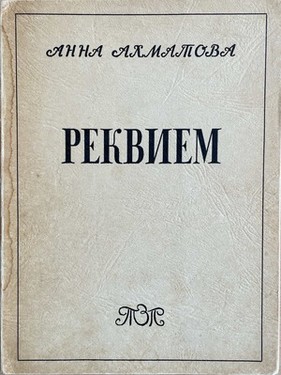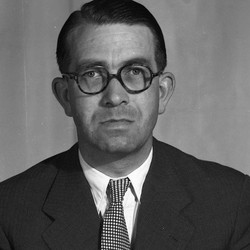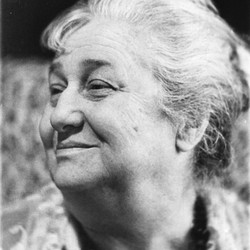A New Voice from Russia

Небольшая брошюра с несколькими десятками страниц русского стиха, только что опубликована в Мюнхене. Это «Реквием»* Анны Ахматовой, и впервые со времен «Доктора Живаго» Пастернака, произведение признанного великого русского автора появилось на Западе до того, как его увидели русские.
Мой коллега Дэвид Флойд, большой поклонник поэзии Ахматовой, говорит, что она передала более ясно, чем кто-либо до нее, влияние сталинского террора на человека. Еще раз, как и в «Иване Денисовиче» Солженицына, страдания целого народа и целого поколения ощущаются через опыт одного человека.
В кратком предисловии Ахматова объясняет, как она пришла к написанию книги. «В страшные годы ежовщины я провела семнадцать месяцев в тюремных очередях в Ленинграде. Как-то раз кто-то “опознал” меня. Тогда стоящая за мной женщина с голубыми губами, которая, конечно, никогда в жизни не слыхала моего имени, очнулась от свойственного нам всем оцепенения и спросила меня на ухо (там все говорили шепотом): – А это вы можете описать? И я сказала: – Могу. Тогда что-то вроде улыбки скользнуло по тому, что некогда было ее лицом».
Стихи, возможно, были прочитаны только небольшим кругом друзей и, предположительно, цензорами. Они достигли Запада без ведома поэтессы.
Поэзия Анны Ахматовой – во многом отражение ее жизни. Она родилась в 1889 году, вышла замуж за поэта Гумилева. Гумилев был арестован и расстрелян в 1918 году [sic!].
В 1938 году был арестован ее сын, и начались неустанные попытки Ахматовой добиться его освобождения. Восемнадцать лет спустя его выпустили больным человеком.
Анна Ахматова – самая русская из поэтов. Как она с гордостью говорит на фронтисписе:
Нет, и не под чуждым небосводом,
И не под защитой чуждых крыл, –
Я была тогда с моим народом,
Там, где мой народ, к несчастью, был.
*Товарищество зарубежных писателей, Мюнхен.
A small booklet, some dozen pages of Russian verse has just been published in Munich. It is “Requiem”* by Anna Akhmatova, and for the first time since Pasternak’s “Doctor Zhivago,” a work by a Russian writer of acknowledged greatness has appeared in the West before being seen by the Russians.
My colleague David Floyd, a great admirer of Akhmatova’s poetry, says she has conveyed more clearly than anyone before her the impact which Stalin’s terror had on the individual. Once again, as in Solzhenitsyn’s “Ivan Denisovich,” the sufferings of a whole nation and a whole generation are felt through the experience of one person.
In a brief foreword, Akhmatova explains how the book came to be written. “In the terrible years of the Terror of the Thirties I spent 17 months in the queues outside Leningrad’s prisons. On one occasion someone recognized me. And then a woman with blue lips who was standing behind me and who had, of course, never heard my name, stirred herself out the numbness we had all acquired and asked me, close to my ear (there everybody spoke in a whisper): —
“‘Can you ever describe this?’ And I replied: ‘Yes, I can.’ Then something like a smile passed over what had once been her face.”
The poems may have been read only by a small circle of friends, and, presumably, the censors. They have reached the West without the knowledge of the poetess.
Anna Akhmatova’s life is the essential background to the poems. Born in 1889, she married the poet Gumilev. Gumilev was arrested and shot in 1918.
In 1938 her son was arrested, and Akhmatova began her unremitting efforts to secure his release. Eighteen years later, he was released, a sick man.
Anna Akhmatova is the most Russian of poets. As she says with pride on the frontispiece:
No, not under a foreign sky,
Nor under the protection of other wings.
I was then with my people.;
There, where my people, unfortunately, were.
* Tovarishchestvo zarubezhnykh pisatelei, Munich.

